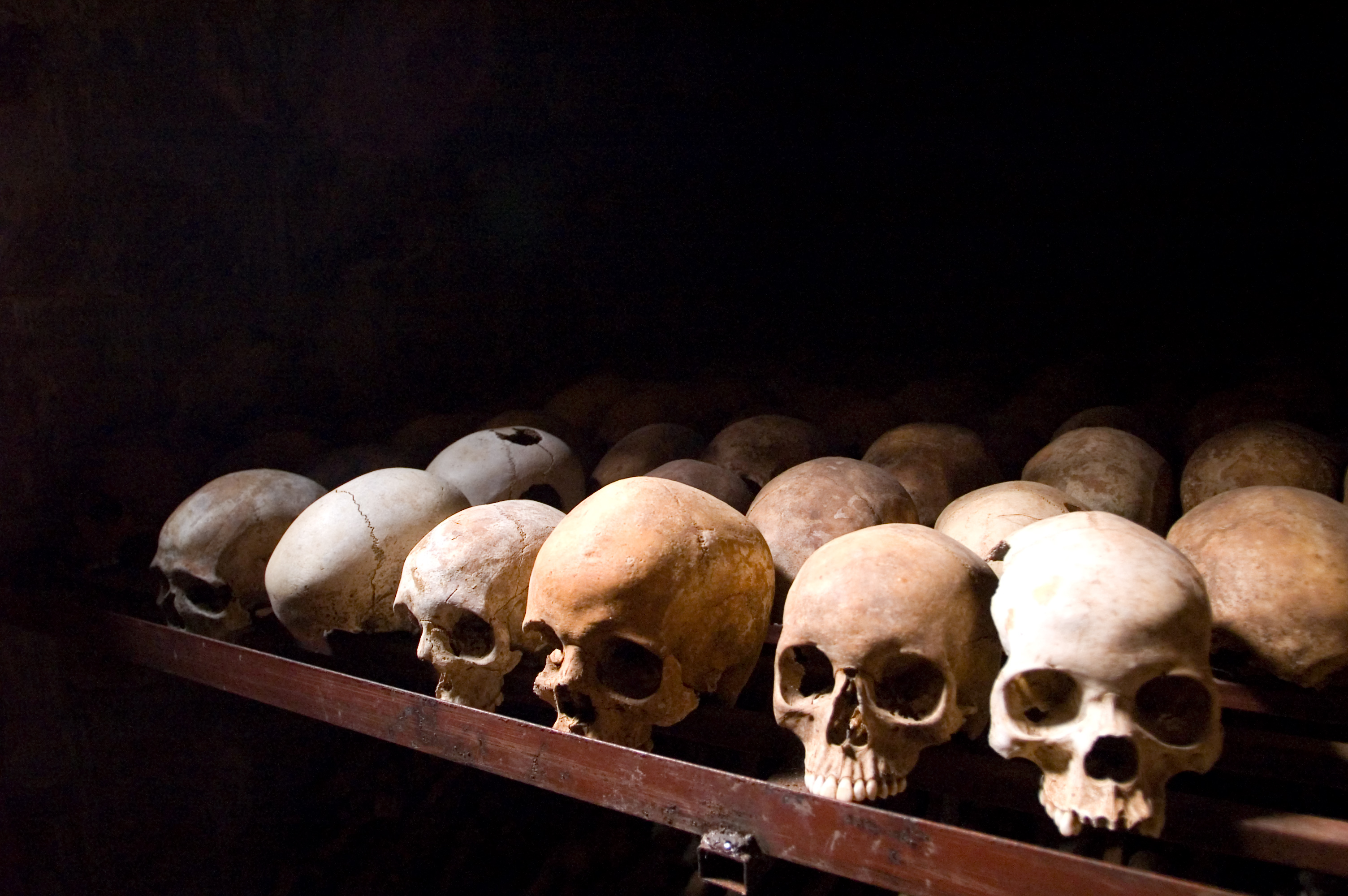
Genocide denial
Genocide denial is the attempt to deny or minimize the scale and severity of an instance of genocide. Denial is an integral part of genocide[1][2][3] and includes the secret planning of genocide, propaganda while the genocide is going on,[1] and destruction of evidence of mass killings. According to genocide researcher Gregory Stanton, denial "is among the surest indicators of further genocidal massacres".[4]
Some scholars define denial as the final stage of a genocidal process.[1] Richard G. Hovannisian states, "Complete annihilation of a people requires the banishment of recollection and suffocation of remembrance. Falsification, deception and half-truths reduce what was, to what might have been or perhaps what was not at all."[5]
Examples include Armenian genocide denial, denial of genocides of Indigenous peoples, Holocaust denial, Cambodian genocide denial, Bosnian genocide denial and Rwandan genocide denial.[6] The distinction between respectable academic historians and illegitimate historical negationists and revisionists, including genocide deniers, rests upon the techniques which are used in the writing of such histories. Historical revisionists and negationists rewrite history in order to support an agenda, which is usually political or ideological, by using falsification and rhetorical fallacies in order to obtain their desired results. Exposure of genocide denial and revisionism surged in the early 21st century, facilitated by the propagation of conspiracy theories and hate speech on social media.[6]
Law[edit]
The European Commission proposed a European Union–wide anti-racism law in 2001, which included an offence of genocide denial, but European Union states failed to agree on the balance between prohibiting racism and freedom of expression. After six years of debating, a watered down compromise was reached in 2007 which gave EU states freedom to implement the legislation as they saw fit.[42][43][44]
In 2022, the United Nations Office on Genocide Prevention and the Responsibility to Protect issued a policy paper associating genocide denial with hate speech, specifically when directed to specific identifiable groups. The report gives policy recommendations for states and UN officials in the matter of denial.[45]